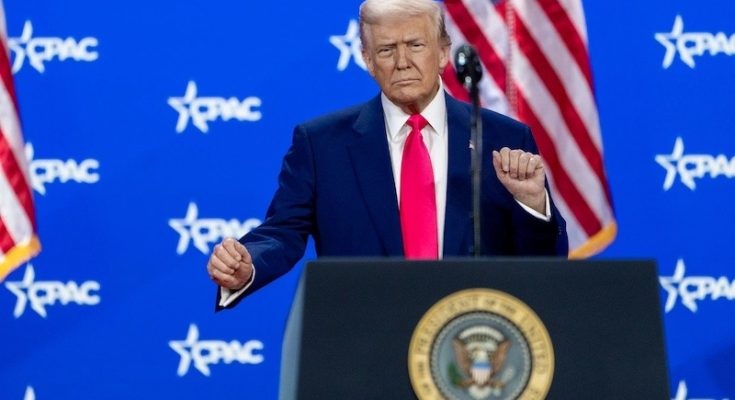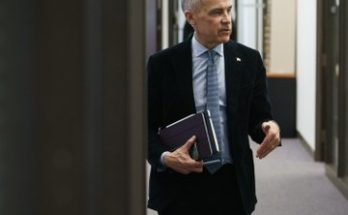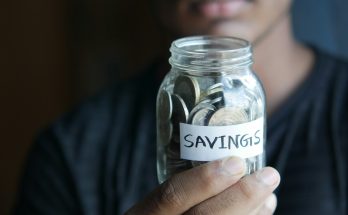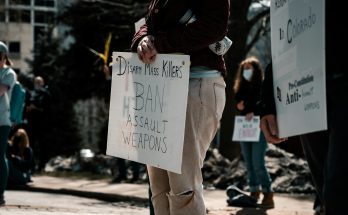Toronto/CMEDIA: Canada is reportedly exempt from the sweeping reciprocal tariffs U.S. President Donald Trump is implementing on most other countries.
Nevertheless 25 percent tariffs on some Canadian goods remain in place, and 25 percent tariffs on all foreign-made automobiles are coming into effect as of Apr 3.
While Canada is so-far unaffected by Trump’s new reciprocal tariffs, many other countries were targeted at varying rates. China, for example, will see a 34 percent tariff rate, while the European Union will see a 20 percent rate.
Canadian Prime Minister Mark Carney had put his election campaign on pause to meet with his Canada-U.S. Relations Council and cabinet to discuss a response to the tariffs.
He was reported telling the reporters on Parliament Hill that the federal government will “act with purpose and with force” during this crisis.
Trump had laid out the details of his long-anticipated reciprocal-tariff regime in the White House Rose Garden on Tuesday afternoon.
“Reciprocal. That means they do it to us and we do it to them…Very simple. Can’t get any simpler than that…It’s our declaration of economic independence,” said the president before continuing to address the crowd while holding a chart listing the tariffs other countries have in place on American products.
The president added that he established a “minimum baseline tariff” of 10 percent on other countries, without specifying which ones, but neither Canada or Mexico were in the list of countries that will be subject to the 10 percent baseline tax.
“Reciprocal tariffs, again, reciprocal, back and forth, back and forth…I call this ‘kind reciprocal’…not full reciprocal…is ‘kind reciprocal. “…My answer is very simple. If they complain…want your tariff rate to be zero, then you build your product right here in America, because there is no tariff.”
April 2 as “Liberation Day” for the American trade system has been repeatedly referred to by the commander-in-chief.
“April 2, 2025 will forever be remembered as the day American industry was reborn, the day America’s destiny was reclaimed, and the day that we began to make America wealthy again,” Trump said Wednesday.
The reciprocal tariffs will be stacked on a series of other Trump-imposed levies, including 25 percent on foreign-made automobiles, of which Canadian vehicles will be exempt.
This exemption would be applied until U.S. administration “establish(es) a process” to tax exclusively the non-American vehicle components of Canada-U.S.-Mexico Agreement (CUSMA)-compliant products.
Levies on steel and aluminum, which became effective on March 12, are also in place.
25 percent levies on all Canadian imports and 10 percent on Canadian energy, related to border security, which were exempt for two months and expired Apr 2, would also apply to all non-CUSMA-compliant goods.
Canada government’s retaliatory measures in response to Trump’s Tariffs so far had been by imposing a 25 percent tariff on $30 billion worth of U.S. goods, including items such as orange juice, wine and spirits will remain in place until the U.S. lifts all of its tariffs on Canadian products. The fentanyl tariffs ad the tariffs for steel and aluminum would also remian in place
While Canada would be ‘very deliberate” with its countermeasures, it will determine retaliatory measures for any additional measures put against Canada
In a meeting of Canada’s premiers on Thursday morning, Carney told reporters on his way into the cabinet meeting that he will wait a day before he responds for the government to assess how best to target its trade actions to hit the U.S. with maximum impact while limiting pain on Canadians.
As of this evening, the tariffs on automobiles will enter into force, and the U.S. has signalled that there will be additional tariffs in so-called strategic sectors, pharmaceuticals, lumber and semiconductors and add Canada will “fight these tariffs with countermeasures.”
The former Bank of Canada governor Stephen Poloz said that due to the ripple effects of those tariffs and potential countermeasures chances of a recession in the U.S.remains “pretty high…(Consumers have) already been working through a very tough cost of living shock from the post-pandemic period…this will only reinforce that feeling of angst down the bottom part of the U.S. economy…We may have to go through a U.S. recession…perhaps the world, will have a recessio…it would be hard to avoid a global recession,” Poloz added
Ahead of Trump’s announcement, both Conservative Leader Pierre Poilievre and NDP Leader Jagmeet Singh weighed in on the tariff threat from their respective campaign trails on Wednesday.
Singh said NDP government would prioritize support for workers impacted by the tariffs, and to give all money collected from counter-tariffs to workers and communities hit the hardest.
Poilievre reiterated on Wednesday that Canada willobviously never be the 51st state, amid threats from Trump to annex the country.
Late last month, Carney announced his government will roll out a $2-billion strategic response fund to help the auto sector, if the Liberals win the election.





